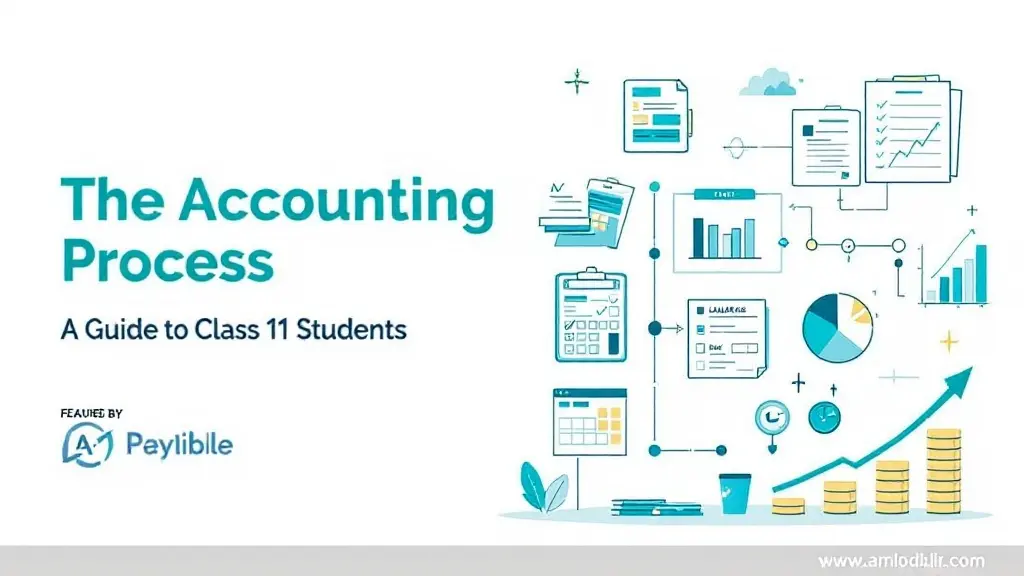A Beginner’s Guide to Basic Accounting: Understanding the Essentials
Table of Contents
Most Read
[fusion_dropcap class="fusion-content-tb-dropcap"]A[/fusion_dropcap]ccounting is the backbone of every successful business. Whether you’re an entrepreneur, a student, or just someone wanting to understand how money flows through a business, grasping the basics of accounting is crucial. In this comprehensive guide, we will explore the fundamental concepts of accounting, making it easy for anyone to grasp, regardless of their experience level.
What Is Accounting?
Accounting is the process of recording, summarizing, and analyzing financial transactions. It helps businesses track their income, expenses, and overall financial health. Simply put, accounting allows business owners, investors, and stakeholders to make informed decisions based on the company’s financial data.
For individuals, accounting offers insight into how money is managed, saved, and invested, making it a crucial skill in both personal and professional life.
Key Concepts in Basic Accounting
Before diving deeper into the intricacies of accounting, it’s important to understand a few key concepts that form the foundation of accounting practices.
1. The Accounting Equation: Assets = Liabilities + Equity
This simple equation forms the core of accounting and is the foundation of the balance sheet. It shows that a company’s total assets are financed either by debt (liabilities) or by the owner’s equity.
- Assets: Anything the business owns that has value (cash, inventory, property, etc.).
- Liabilities: What the business owes (loans, accounts payable).
- Equity: The owner’s share in the business after all liabilities are deducted from assets.
This equation must always balance. If it doesn’t, it’s a sign that there’s an error in the financial records.
2. Double-Entry System: Every Transaction Has Two Parts
In basic accounting, transactions are recorded using the double-entry system, which means every financial transaction affects at least two accounts. For example, if a business purchases equipment, the equipment account increases, but the cash account decreases.
Each transaction involves:
- Debit (Dr): Increases in assets or expenses.
- Credit (Cr): Increases in liabilities, equity, or revenue.
The key here is that debits must always equal credits. This ensures the accounting equation stays balanced.
Essential Financial Statements in Accounting
To better understand a company’s financial health, accountants prepare several key financial statements. Let’s take a look at the most common ones.
1. The Balance Sheet
The balance sheet gives a snapshot of a company’s financial position at any given moment. It consists of:
- Assets: What the company owns.
- Liabilities: What the company owes.
- Owner’s Equity: The owner’s stake in the business after subtracting liabilities from assets.
The balance sheet follows the accounting equation mentioned earlier and is a powerful tool for assessing a business’s financial stability.
2. The Income Statement
Also known as the profit and loss statement, the income statement outlines a company’s revenues and expenses over a specific period, typically a quarter or year. It shows whether the business is making a profit or incurring a loss.
Key components:
- Revenue: The income from selling goods or services.
- Cost of Goods Sold (COGS): The direct costs of producing goods or services.
- Operating Expenses: Costs incurred to run the business, like rent, utilities, and salaries.
- Net Income: The profit or loss after deducting all expenses from revenue.
3. The Cash Flow Statement
The cash flow statement tracks the movement of cash in and out of a business. Unlike the income statement, it focuses on actual cash, not just profits. It helps businesses understand whether they have enough liquidity to cover short-term obligations.
The statement is divided into three activities:
- Operating Activities: Cash generated or used in core business operations.
- Investing Activities: Cash related to buying or selling assets.
- Financing Activities: Cash raised from or paid to investors and creditors.
Key Accounting Terms You Should Know
To make the learning process easier, here’s a list of essential accounting terms to get familiar with:
- Accounts Payable (AP): Amounts a company owes to suppliers for goods or services received.
- Accounts Receivable (AR): Amounts customers owe to the company for goods or services provided.
- General Ledger (GL): A complete record of all financial transactions in a business.
- Journal Entries: The initial record of a financial transaction, before being posted to the general ledger.
- Trial Balance: A summary of all the accounts in the general ledger to check the accuracy of the journal entries.
The Importance of Accounting in Business
Accounting plays a critical role in the success and growth of any business. Here are some reasons why understanding the basics of accounting is important:
1. Tracking Financial Performance
By maintaining proper records of revenues and expenses, businesses can monitor their financial performance over time. This helps in making data-driven decisions, like whether to expand, reduce costs, or adjust pricing strategies.
2. Ensuring Compliance with Tax Regulations
Businesses are required to pay taxes on their earnings, and having accurate accounting records ensures they comply with tax laws. Without proper accounting, businesses may face penalties for underreporting or misreporting their income.
3. Managing Cash Flow
Cash flow management is vital to the day-to-day functioning of a business. Without a clear understanding of cash flow, a company might find itself struggling to meet its obligations. Accounting helps businesses forecast cash needs and avoid liquidity problems.
4. Attracting Investors and Lenders
Potential investors or lenders often want to see a company’s financial records before they decide to invest or lend money. Proper accounting allows businesses to present accurate, reliable financial statements that build trust and increase the likelihood of securing funding.
Basic Accounting Principles
There are several accounting principles that form the foundation of accounting standards worldwide. Here are a few important ones:
1. Accrual Basis Accounting
This principle states that revenues and expenses should be recognized when they are earned or incurred, not when the cash is received or paid. For example, if a business sells a product on credit, the revenue is recognized at the time of sale, not when the customer pays.
2. Conservatism Principle
This principle suggests that businesses should be cautious when estimating income or valuing assets. When faced with uncertainty, accountants should choose the option that leads to lower profits or asset values, ensuring that potential losses are recognized early.
3. Consistency Principle
Once an accounting method is adopted, it should be used consistently over time. This ensures that financial statements are comparable across periods, allowing stakeholders to assess trends and performance accurately.
Tips for Mastering Basic Accounting
If you’re new to accounting, here are some tips to help you get started:
1. Start with the Basics
Don’t try to understand everything at once. Begin with the core concepts—such as the accounting equation, the types of financial statements, and basic journal entries—and build your knowledge from there.
2. Use Simple Accounting Software
Today, many accounting tools are available to help beginners. Software like QuickBooks, FreshBooks, and Xero simplifies the process of managing accounts, allowing you to focus on learning the principles without getting bogged down by manual calculations.
3. Practice Regularly
Accounting requires practice to master. Regularly review financial records, balance sheets, and income statements to get comfortable with the concepts. The more you practice, the easier it becomes.
4. Seek Guidance from Experts
If you’re struggling with more advanced concepts, don’t hesitate to seek help from professional accountants or online resources. Many websites and forums offer free tutorials and guides to deepen your understanding.
Conclusion
Basic accounting may seem overwhelming at first, but with a little effort and understanding of the core concepts, you can start managing your business finances with confidence. From tracking income and expenses to understanding key financial statements, the knowledge of basic accounting is an essential skill for business owners and anyone involved in financial decision-making.
By mastering these basics, you’ll be well on your way to ensuring financial success, stability, and growth—whether you’re running your own business or simply managing your personal finances.









